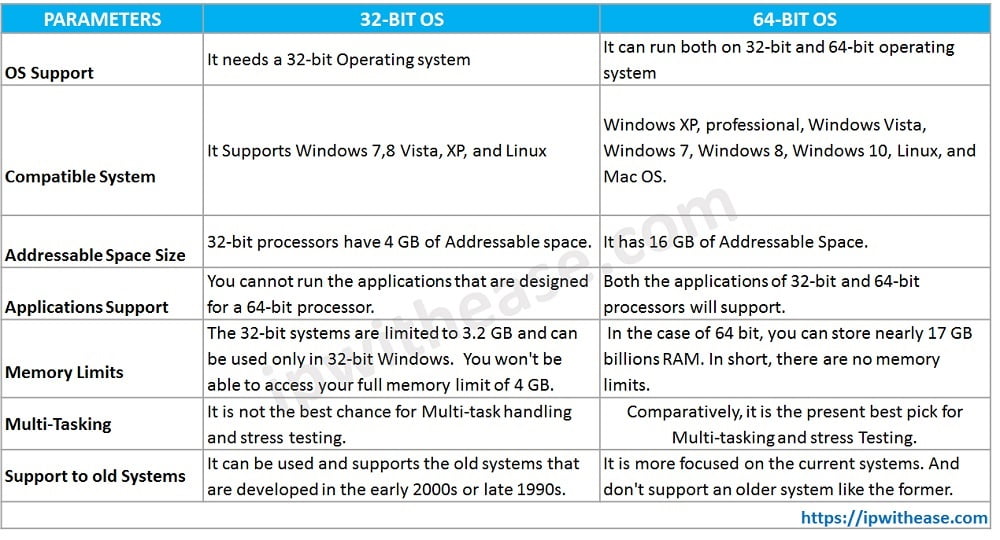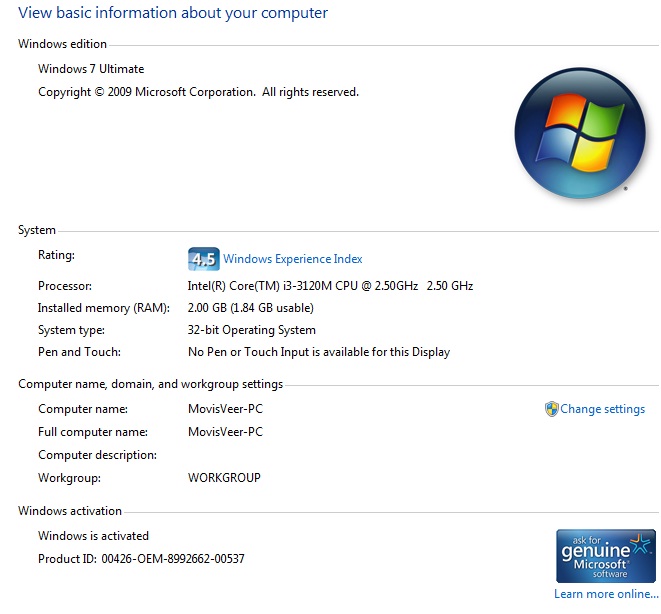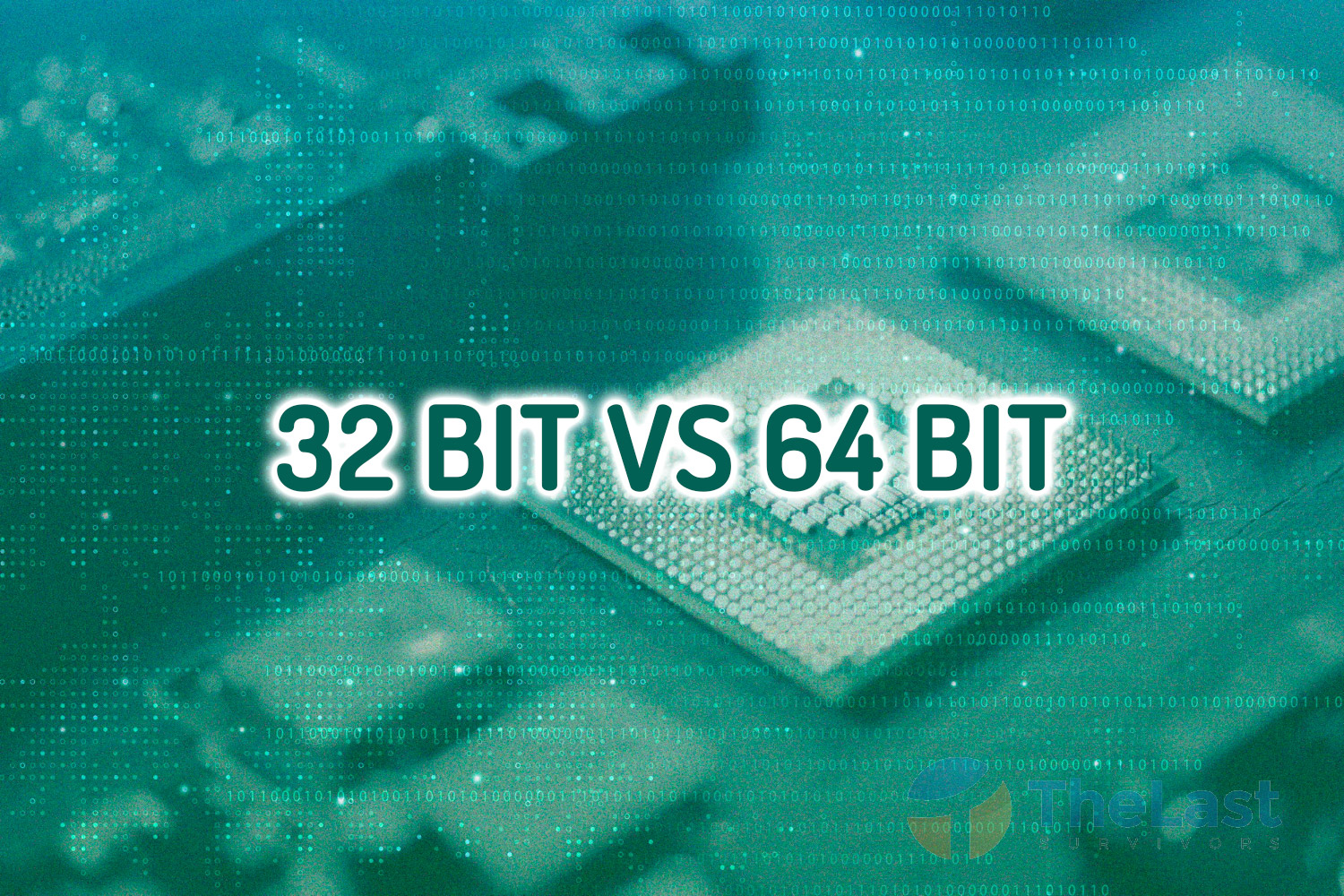Smart Info About Is 32-bit Better Than 64

64 Bit 32
Understanding the 32-bit vs. 64-bit Debate
1. What's the core difference?
So, you're wondering if 32-bit is somehow superior to 64-bit? Let's tackle this head-on. At its heart, the "bit" number refers to how much data a processor can handle at once. Think of it like the number of lanes on a highway. A 32-bit processor can handle 32 lanes of data, while a 64-bit processor can handle a whopping 64 lanes simultaneously. More lanes generally mean faster processing, right? That's the general idea.
Now, where does this translate into real-world performance? Primarily, it affects the amount of RAM (Random Access Memory) your system can effectively utilize. A 32-bit system is typically limited to around 4GB of RAM. A 64-bit system? The sky's the limit — or, more realistically, terabytes. If you're running resource-intensive applications, like video editing software or modern games, more RAM is a massive advantage.
Imagine trying to pour a gallon of water through a small straw. That's a 32-bit system trying to handle a large, modern program. A 64-bit system is like using a wide-mouthed funnel; it can handle the flow much more efficiently. This translates to snappier performance, smoother multitasking, and the ability to work with larger files without your computer grinding to a halt.
It's important to remember that both the processor and the operating system need to be 64-bit to take full advantage of the 64-bit architecture. You can't just slap a 64-bit processor into an old 32-bit system and expect miracles to happen. They need to work together as a team. Essentially, 64-bit is not inherently better, but in today's computing landscape, it offers capabilities that 32-bit simply cannot match.

What Is The Difference Between Matlab 64 Bit And 32 Falassearch
The Ramifications of RAM
2. Why does RAM capacity matter so much?
Okay, so we've established that 64-bit systems can use significantly more RAM. But why is that actually important? Think of RAM as your computer's short-term memory. It's where the data that your actively using is stored for quick access. The more RAM you have, the more programs and data you can keep readily available, preventing the dreaded slowdowns that occur when your system has to constantly swap data between RAM and your hard drive (or SSD).
Consider a scenario where you're running a web browser with multiple tabs open, editing a document, and listening to music — all at the same time. A 32-bit system with its limited RAM capacity might start to struggle, forcing it to constantly shuffle data back and forth. This creates noticeable lag and can make the whole experience frustrating. A 64-bit system, with its larger RAM capacity, can handle all of these tasks with much greater ease, keeping everything running smoothly.
Modern software, especially games and creative applications, are increasingly demanding in terms of RAM. They often require gigabytes of RAM just to run efficiently. Trying to run these applications on a 32-bit system is like trying to fit an elephant into a Mini Cooper; it's just not going to work very well. A 64-bit system provides the necessary headroom to handle these demands without breaking a sweat.
Essentially, the jump from 32-bit to 64-bit is all about future-proofing your system. While you might be able to get away with a 32-bit system for basic tasks like browsing the web and sending emails, you'll quickly run into limitations if you want to do anything more demanding. More RAM, thanks to 64-bit architecture, opens up a world of possibilities and ensures that your computer can handle the demands of modern software.

Compatibility
3. Will my old programs still work?
Now, let's address a very valid concern: compatibility. If you're considering switching from a 32-bit system to a 64-bit one, you might be worried about whether your old programs will still work. The good news is that most 64-bit operating systems are designed to run 32-bit applications without any issues. They do this through a process called "emulation," which essentially allows the 64-bit system to mimic a 32-bit environment for the program to run in.
However, there are some caveats. While most 32-bit programs will work just fine on a 64-bit system, there are some exceptions. Older programs that rely on outdated technologies or drivers might not be compatible. It's always a good idea to check the compatibility of your critical software before making the switch. Usually, a quick search online can provide valuable information about whether a particular program is known to work well on 64-bit systems.
On the flip side, 64-bit programs cannot run on a 32-bit system. This is a fundamental limitation of the architecture. If you're using software that's specifically designed for 64-bit systems, you'll need to upgrade to a 64-bit operating system and processor to use it. This is becoming increasingly common, as more and more developers are focusing on 64-bit compatibility for their software.
So, the bottom line is that compatibility is generally not a major concern when moving from 32-bit to 64-bit. Most of your old programs will likely work just fine. However, it's always wise to do a little bit of research to ensure that your essential software is compatible before making the switch. And remember, you'll need a 64-bit processor and operating system to run 64-bit applications.

Security Implications
4. Does one offer better protection?
Beyond performance and compatibility, there's also the question of security. Does a 32-bit or 64-bit system offer better protection against malware and other security threats? The answer is a bit nuanced. In general, 64-bit systems can offer enhanced security features, but it's not a guaranteed advantage.
One of the key security benefits of 64-bit systems is Address Space Layout Randomization (ASLR). ASLR is a technique that randomizes the memory addresses used by programs, making it more difficult for attackers to exploit vulnerabilities. Because 64-bit systems have a larger address space, they can implement ASLR more effectively than 32-bit systems. This makes it harder for attackers to predict where critical data is stored in memory, making exploits less reliable.
However, it's important to remember that security is a multi-layered approach. ASLR is just one piece of the puzzle. Other factors, such as having a strong firewall, using up-to-date antivirus software, and practicing safe browsing habits, are equally important. A 64-bit system with poor security practices is still vulnerable to attacks, just like a 32-bit system with the same vulnerabilities.
Furthermore, the effectiveness of ASLR depends on how well it's implemented by the operating system and the applications themselves. A poorly implemented ASLR can be bypassed by determined attackers. So, while 64-bit systems can offer enhanced security features, it's not a silver bullet. A comprehensive approach to security is always the best defense.

The Verdict
5. Ultimately, which one should you choose?
After all this discussion, let's get to the heart of the matter: Is 32-bit better than 64-bit? In today's computing world, the answer is almost universally no. While there might have been niche scenarios in the past where a 32-bit system could suffice, the advantages of 64-bit architecture are simply too compelling to ignore for most users.
The ability to use more than 4GB of RAM is a game-changer, especially for those who work with resource-intensive applications like video editing software, graphic design tools, or modern games. A 64-bit system allows you to run these applications smoothly and efficiently, without the performance bottlenecks that plague 32-bit systems. It's like upgrading from a bicycle to a car — you can cover more ground with less effort.
Furthermore, the enhanced security features offered by 64-bit systems, such as improved ASLR, can provide an extra layer of protection against malware and other security threats. While not a foolproof solution, it's certainly a welcome addition in today's increasingly dangerous online environment. Couple that with good security habits, you'll be much more safer.
While compatibility is generally not a major concern, it's always wise to check the compatibility of your essential software before making the switch. However, for the vast majority of users, the benefits of 64-bit far outweigh any potential compatibility issues. In short, if you have the option, a 64-bit system is almost always the better choice. It offers superior performance, enhanced security, and the ability to run the latest software without limitations. Embrace the 64-bit world — you won't regret it!
